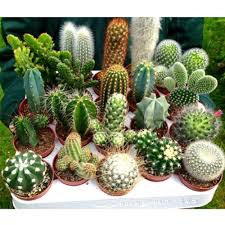The Legend of the Feng Shui Animal Spirits in Chinese Culture

In Chinese culture, the practice of Feng Shui is deeply rooted in ancient beliefs, connecting humans with nature and the surrounding environment. It seeks to achieve balance, harmony, and positive energy (or “chi”) by positioning objects, structures, and natural elements in ways that encourage the flow of this vital energy. One of the most intriguing aspects of Feng Shui involves the use of animal spirits, or symbolic creatures, which hold profound significance in Chinese traditions. These animals are believed to bring various forms of good luck, prosperity, protection, and balance to a space or individual. Their origins are often tied to rich myths and legends that have been passed down through generations.
This article explores the legendary animals that hold prominence in Feng Shui, their symbolic meanings, and the ways in which they influence Feng Shui practices. From the mighty dragon to the serene tortoise, each of these creatures carries a specific type of energy, shaping the way they are used in Feng Shui for personal and environmental well-being.
1. The Dragon: Symbol of Power, Protection, and Success
The Dragon is perhaps the most iconic and revered creature in Chinese mythology and Feng Shui. A creature of immense power, the Dragon is known to bring good fortune, prosperity, and success. In contrast to the Western image of a ferocious fire-breathing monster, the Chinese Dragon is viewed as a benevolent, auspicious symbol, associated with the Yang energy.
The Legend of the Dragon
According to Chinese legend, the Dragon is a mythical creature that can transform between various forms, such as a fish, a snake, or a lion. It is often portrayed with the body of a serpent, the claws of an eagle, the antlers of a stag, and the scales of a fish. The Dragon is traditionally believed to reside in the skies or the oceans, controlling weather and natural forces, especially rainfall. Ancient Chinese emperors regarded themselves as descendants of dragons, and the dragon symbolized their divine right to rule.
In Feng Shui, the Dragon is believed to harness Yang energy, making it a powerful force for success, career advancement, and protection against negative forces. The Dragon is typically used to activate the career sector of a space, most often placed in the north or east, where it represents growth, vitality, and prosperity.
The Role of the Dragon in Feng Shui
In Feng Shui, the Dragon is used to enhance the flow of chi and to protect a home or business from harmful energies. A Dragon figurine can be placed on a desk or at the entrance to attract good fortune and success, especially for those looking to advance in their careers. It is also a popular symbol in business Feng Shui, where it represents growth and the expansion of financial wealth.
The Dragon’s presence is believed to provide protection, boost confidence, and bring about the realization of one’s goals. It is a symbol of dominance and achievement, making it particularly useful for those seeking recognition or leadership roles.
2. The Phoenix: Symbol of Renewal, Rebirth, and Transformation
The Phoenix, known as the Fenghuang in Chinese mythology, is another key creature in Feng Shui. The Phoenix is associated with Yin energy and represents the qualities of beauty, grace, and peace. It is often depicted as a colorful and majestic bird, symbolizing harmony and the balance of opposites.
The Legend of the Phoenix
In Chinese legend, the Phoenix is said to be a magical bird that can be reborn from its ashes. When the Phoenix reaches the end of its life cycle, it bursts into flames and is reduced to ashes, only to rise again as a new, rejuvenated creature. This symbolizes the cyclical nature of life and death, as well as the potential for transformation and renewal. The Phoenix is often paired with the Dragon in Chinese iconography, as the two creatures represent the harmonious balance between yin and yang.
The Role of the Phoenix in Feng Shui
In Feng Shui, the Phoenix represents the power of rebirth and transformation. It is a symbol of overcoming challenges, personal growth, and finding balance after times of struggle. The Phoenix is placed in spaces where renewal and transformation are desired, such as in areas of life that require healing or revitalization, including relationships or personal health.
The Phoenix is often used by individuals seeking to transform their careers, rebuild their personal lives, or overcome obstacles. The bird’s ability to rise from the ashes is believed to inspire strength and resilience, especially during difficult times. In the practice of Feng Shui, the Phoenix can be placed in the southern part of a home or office to activate positive energy and encourage rejuvenation.
3. The Tortoise: Symbol of Longevity, Stability, and Protection
The Tortoise is another important Feng Shui animal, revered for its symbolism of longevity, stability, and protection. The tortoise is often depicted with a dragon’s head, symbolizing the union of power and endurance.
The Legend of the Tortoise
According to Chinese folklore, the tortoise is one of the oldest and most enduring creatures, often associated with wisdom and the passage of time. The tortoise is said to carry the weight of the world on its back, symbolizing stability and the grounding qualities of earth. It is also connected to the Eight Immortals, where it is believed that the tortoise aids in providing protection and support to those who seek its guidance.
The tortoise is said to be capable of living for over a thousand years, making it a key symbol in Chinese culture of immortality and endurance. It is often seen as a symbol of resilience and strength, especially in the face of hardship.
The Role of the Tortoise in Feng Shui
In Feng Shui, the tortoise is primarily used as a symbol of protection and longevity. A tortoise figurine or image is commonly placed in the north corner of a home or office to promote stability and security. It is believed to protect inhabitants from negative energy and support their longevity and good health. The tortoise is also associated with the Water element, which symbolizes wisdom and adaptability.
The tortoise’s slow and steady nature encourages long-term success, making it an ideal symbol for those seeking sustained growth in their personal or professional lives. It also represents a shield against harmful energies, ensuring the stability and safety of the people in the space.
4. The Tiger: Symbol of Courage, Strength, and Protection
The Tiger is one of the four guardian animals in Feng Shui, each representing a different cardinal direction and protective energy. The Tiger is associated with the west and is seen as a powerful force of protection, representing courage, strength, and assertiveness.
The Legend of the Tiger
In Chinese mythology, the Tiger is a creature of immense power and ferocity. Known as the “King of Beasts,” it is admired for its bravery and dominance. The Tiger is a protector of the natural world, often associated with the forest and wild animals. It is considered a symbol of strength and authority, with many stories depicting the Tiger as an indomitable force capable of overcoming any obstacle.
The Role of the Tiger in Feng Shui
In Feng Shui, the Tiger is placed in the west of a home or office to attract courage and strength, especially during difficult times. It is believed to provide protection against harm and misfortune and is often used to safeguard the home from negative influences. The Tiger can also be used to enhance personal power, helping individuals assert themselves and find the courage to take action.
The Tiger is particularly effective for those seeking to boost their leadership abilities, enhance their self-confidence, or stand strong in the face of adversity. Its protective qualities make it an excellent symbol for those in need of a strong defense against harmful energies.
5. The Elephant: Symbol of Wisdom, Wealth, and Protection
The Elephant is another revered creature in Feng Shui, symbolizing wisdom, wealth, and protection. In Chinese culture, the elephant is often associated with the Water element, which represents the flow of positive energy and abundance.
The Legend of the Elephant
Elephants are admired in many cultures for their intelligence and social nature. In Chinese mythology, the elephant is often seen as a symbol of good luck and a bringer of financial prosperity. It is also believed to possess the power to remove obstacles and bring peace to difficult situations.
The Role of the Elephant in Feng Shui
In Feng Shui, the Elephant is used to promote wealth, good fortune, and protection. Elephants are typically placed at entrances or in areas where financial and career success are desired. It is believed that placing an elephant with its trunk raised will attract positive energy, while one with its trunk pointed downward will bring peace and calm to a space. The Elephant is also a symbol of stability, helping to ground the energy within the home or office.
Conclusion
The Feng Shui animal spirits hold a profound place in Chinese culture, each with its own unique symbolic meanings and legendary roots. These creatures are not only important in Feng Shui but also in Chinese mythology, where they represent various aspects of life such as prosperity, longevity, protection, and transformation. By incorporating these powerful animal symbols into our homes and workplaces, we can invite positive energies that enhance various aspects of our lives, from health and wealth to success and harmony.
Understanding the legends and symbolism of these creatures allows us to use them wisely in our Feng Shui practices. Whether it’s the mighty Dragon, the graceful Phoenix, the steadfast Tortoise, the courageous Tiger, or the wise Elephant, each animal spirit plays a crucial role in maintaining balance and attracting the energy we need to thrive in the world.

